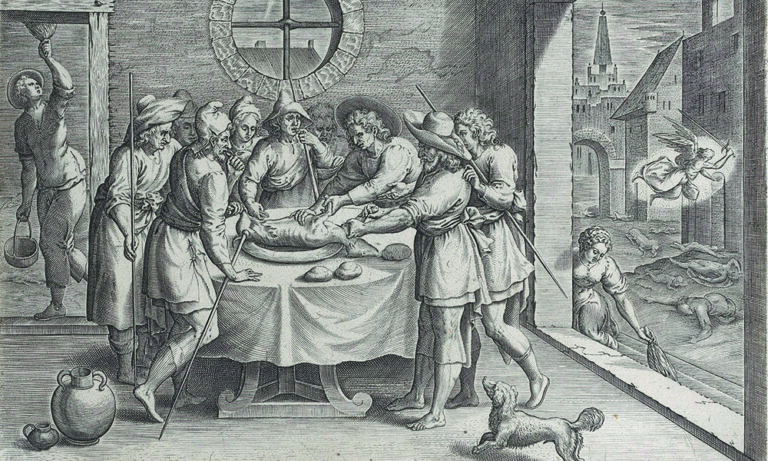The etymology of the word Passover seems straightforward. Passover, the English translation of pesach, refers to God passing over the houses of Hebrews marked with lamb’s blood, sparing them from the plague that affected the Egyptian first-borns. However, the true origins of the word are more complex than commonly thought.
According to David Biale, a professor of Jewish history at the University of California, the commonly accepted meaning of Passover is a “false etymology” that attempts to connect ancient rituals with the biblical narrative. Scholars believe that these ancient rituals predate the biblical account of the Israelites’ liberation from Egypt, with two separate spring festivals celebrating life renewal—one involving animal sacrifice and the other unleavened bread. The Exodus story merges these two festivals into the Passover celebration.
The confusion surrounding the English term Passover can be traced back to a 16th-century Christian named William Tyndale, who coined the term. Tyndale, a Protestant reformer, was executed for his ideas, including making the Scriptures accessible to all. His translation of the Pentateuch in 1530 marked the first time Hebrew Scriptures were available in English.
Tyndale noted that two Hebrew words, pasach (to pass over) and pesach (the lamb sacrifice), sounded similar. He translated both as “Passover,” providing English speakers with an explanation for two biblical terms. Tyndale’s translations, including Passover, Jehovah, atonement, and scapegoat, were included in the 1611 King James Bible and subsequently became part of modern English.
Scholars who suggest that the Torah had multiple authors from different time periods argue that pasach and pesach have other meanings, with some translating it as “protection.” The Jewish Study Bible suggests that in Exodus, pesach signifies God protecting the Israelites from harm, rather than simply passing over them. Meanwhile, Ari Zivotofsky proposes that pesach can also mean “compassion or mercy,” with interpretations varying throughout history.
In conclusion, the etymology of the word Passover is more nuanced than commonly believed, with various interpretations and translations contributing to its complexity over time.

